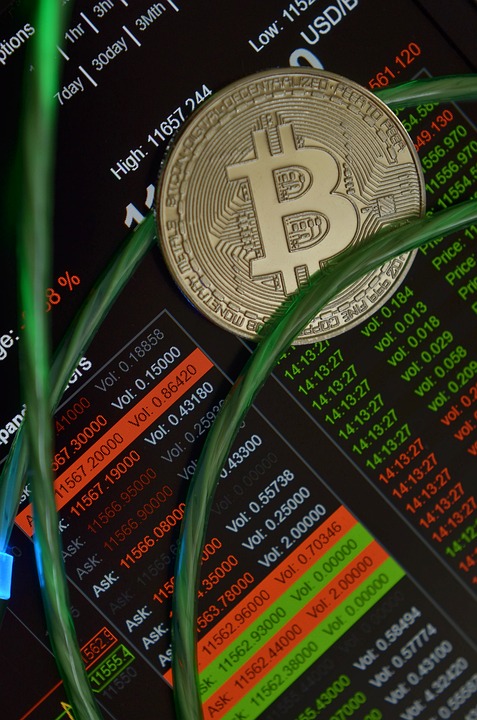In a world increasingly dependent on digital solutions, the financial industry stands on the brink of transformation. Decentralized Finance, commonly known as DeFi, is spearheading a revolution that seeks to democratize financial services. At the core of this movement is the ability to empower the unbanked—those without access to traditional banking systems—unlocking the potential of millions of individuals worldwide.
Understanding DeFi
Decentralized Finance refers to a set of blockchain-based financial services that operate without intermediaries like banks or brokers. Built primarily on protocols like Ethereum, DeFi utilizes smart contracts to facilitate a variety of financial transactions, including lending, borrowing, trading, and saving. By eliminating intermediaries, DeFi introduces a transparency and accessibility that traditional financial systems often lack.
The Unbanked: A Significant Global Challenge
Approximately 1.7 billion adults around the world remain unbanked, according to the World Bank. Many of these individuals reside in developing economies where traditional banks are few and far between, or where the cost of opening a bank account is prohibitively high. As a result, these people often rely on informal financial systems, leading to higher risks, fewer opportunities for savings, and limited credit access. This lack of access to financial services perpetuates a cycle of poverty, stifling economic growth and personal development.
How DeFi is Changing the Game
1. Accessibility
One of the most significant advantages of DeFi is its accessibility. Anyone with an internet connection can engage with DeFi protocols, regardless of geographical location or socioeconomic status. This is particularly advantageous for unbanked individuals who may not have proximity to a brick-and-mortar bank. With just a smartphone and an internet connection, these users can access decentralized applications (dApps) that provide financial services typically reserved for banking clients.
2. Lower Costs
Transaction fees in traditional financial systems can be cost-prohibitive, especially for low-income individuals. DeFi reduces these costs by cutting out intermediaries, allowing users to interact directly with smart contracts. Overall, the decentralized nature of DeFi creates a competitive market environment, which can drive down fees for users—even further benefiting those who rely on smaller transaction amounts.
3. Increased Financial Inclusion
DeFi platforms often employ solutions that enhance financial inclusion, such as lending protocols enabling users to secure loans without credit scores or background checks. For individuals historically excluded from financial systems, these innovations represent a chance to build creditworthiness and enter the formal economy. Furthermore, the permissionless nature of DeFi means that anyone can provide liquidity or yield farming opportunities, allowing even the unbanked to generate income.
4. Financial Sovereignty
DeFi empowers individuals by putting them in control of their finances. Users can manage their assets without relying on banks or third-party institutions, fostering a sense of financial sovereignty. This paradigm shift challenges traditional notions of trust, as individuals learn to trust in code and decentralized systems over institutions that have historically worked against their interests.
5. Educational Opportunities
As DeFi evolves, it also creates a need for financial literacy. Various platforms are implementing educational initiatives to help users understand how to navigate DeFi ecosystems effectively. Empowering the unbanked with knowledge on how to utilize these tools can lead to more informed decision-making, encouraging better financial habits and a deeper understanding of personal finance.
6. Innovation and Adaptation
The DeFi landscape is ever-evolving, and new projects are continually emerging to meet the needs of the unbanked. From stablecoins—digital currencies pegged to fiat currencies—to decentralized identity solutions that verify users without traditional documentation, innovation in this space is relentless. These advancements present opportunities for tailored solutions that can directly address the unique challenges faced by unbanked populations.
Challenges Ahead
While DeFi holds tremendous promise for transforming access to financial services, it also faces challenges. Issues such as regulatory uncertainty, security vulnerabilities, and the potential for scams can hinder progress. Moreover, building trust in these new systems remains key, particularly for populations that may have been disadvantaged or exploited by traditional banking.
Conclusion
Decentralized Finance represents a significant shift toward an inclusive financial ecosystem that prioritizes accessibility, transparency, and autonomy for all individuals, especially the unbanked. As the world continues to embrace digital solutions, DeFi stands ready to transform lives, offering opportunities where traditional systems have failed. This financial revolution is not just about technology; it’s about creating a more equitable world where everyone has a stake in their financial future. With ongoing innovation and awareness, DeFi could truly pave the way for a more inclusive and empowered global economy.




